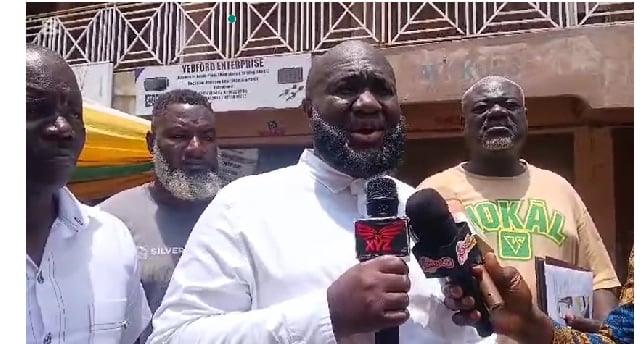The Abossey Okai Spare Parts Dealers Association, located in the Greater Accra Region of Ghana, has issued a stern ultimatum to foreign-owned spare parts shops operating within the Abossey Okai community: attend a mandatory meeting to discuss the debilitating impact of import duties on business operations, or face potential closure. This ultimatum, set to be enforced by September 1st, underscores the escalating tensions and financial pressures faced by local businesses in the spare parts sector. The Association views these foreign-owned businesses, particularly those operating on a smaller scale, as a direct threat to the livelihood of established Ghanaian dealers, accusing them of eroding their market share and jeopardizing the survival of the local industry.
At the heart of the Association’s concerns is the belief that foreign-owned businesses, particularly those operating as “table-top” retailers, are unfairly competing with established local dealerships. The Association argues that these smaller, often informal, foreign-owned operations are able to undercut prices and attract customers away from larger, established Ghanaian businesses. This practice, they contend, is unsustainable and threatens to drive local dealers out of the market. The upcoming meeting serves as a platform for the Association to engage with foreign-owned businesses and to determine the nature of their operations – whether they are engaging in wholesale or retail trade – a distinction that is crucial for the Association’s strategy to protect the retail space for Ghanaian businesses.
Adding to the pressure faced by local spare parts dealers is the complex issue of import duties. While the recent depreciation of the dollar exchange rate against the Ghanaian cedi should logically lead to a reduction in import duties, the government has yet to adjust these tariffs accordingly. This inaction, according to the Association, places an undue burden on spare parts dealers, who rely heavily on imported goods. The Association’s General Secretary, Mrs. Gifty Lovelace Fianu, has issued a direct appeal to the government for urgent intervention on this matter, emphasizing the financial strain it places on businesses and the potential for job losses within the sector if the situation remains unaddressed.
The combination of increasing competition from foreign-owned businesses and the sustained high import duties creates a precarious situation for Ghanaian spare parts dealers. They perceive themselves as fighting a battle on two fronts – against external competition and against government policies that they perceive as unfavorable. The ultimatum to foreign-owned shops reflects the Association’s resolve to take decisive action to protect its members’ interests. The closure of these shops is intended to serve as a strong message to both the foreign-owned businesses and the government, highlighting the urgency of addressing their concerns.
The Association’s threat of closure signifies a critical point in the ongoing struggle for market share and economic survival within the spare parts industry. It underscores the deep-seated anxieties and frustrations felt by local businesses who feel marginalized by external competition and overlooked by government policy. The meeting scheduled before the September 1st deadline is crucial. It represents an opportunity for dialogue and potential resolution, but also a potential flashpoint if a mutually agreeable outcome isn’t reached. The Association’s stance is clear: they will not sit idly by while their businesses are jeopardized.
The future of the spare parts industry in Abossey Okai hangs in the balance. The outcome of the meeting with foreign-owned businesses and the government’s response to the Association’s plea for revised import duties will significantly shape the landscape of the sector. The Abossey Okai Spare Parts Dealers Association’s decisive stance underscores the urgency of the situation and the lengths to which they are willing to go to protect their livelihoods and the future of the Ghanaian spare parts industry. The potential closure of foreign-owned shops serves as a potent symbol of their determination and a clear warning that the status quo is unsustainable.














